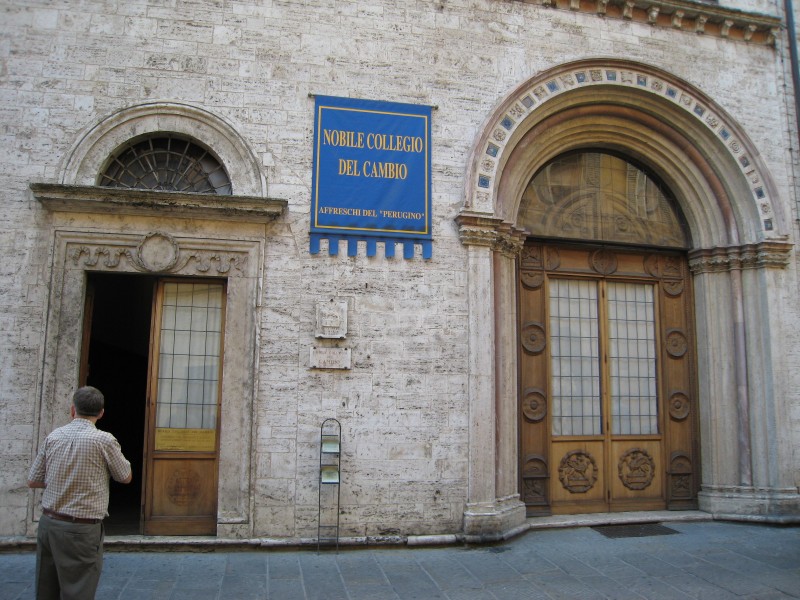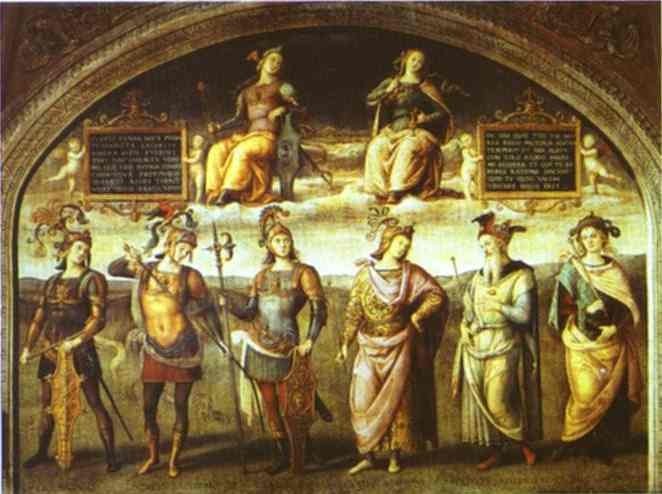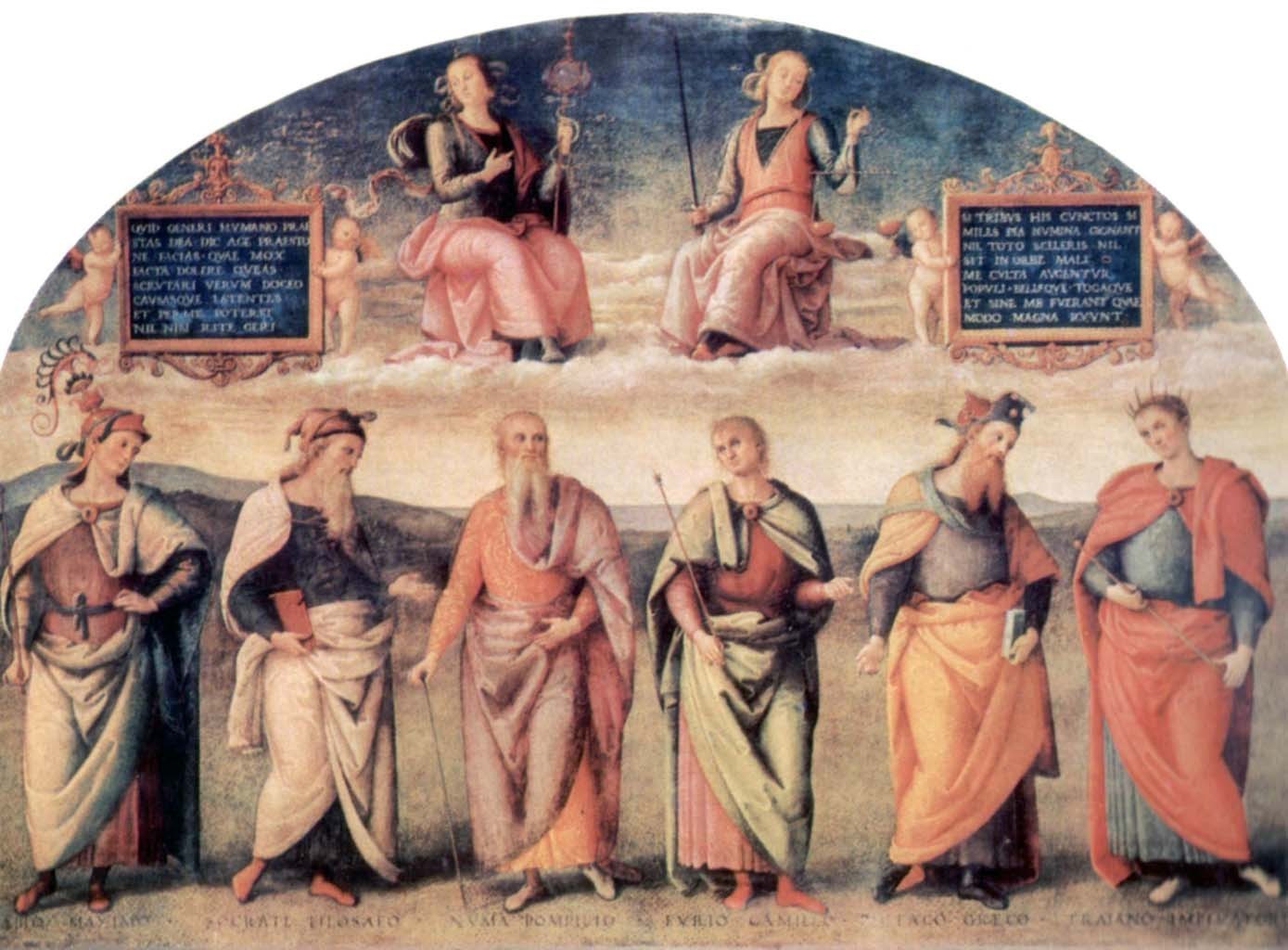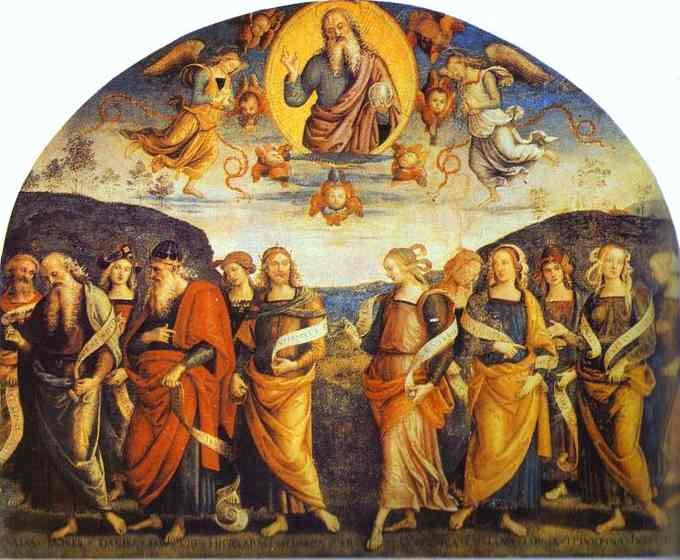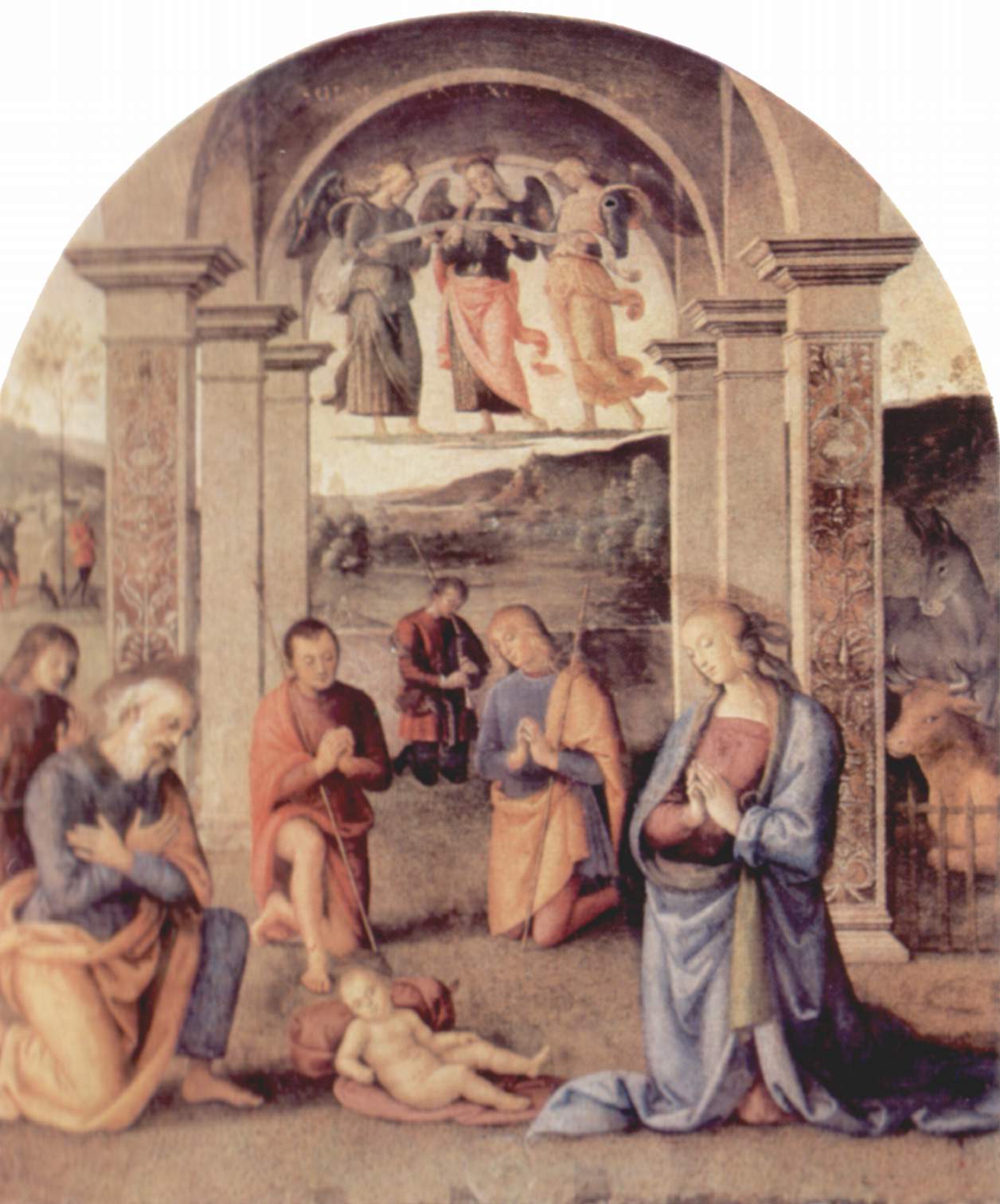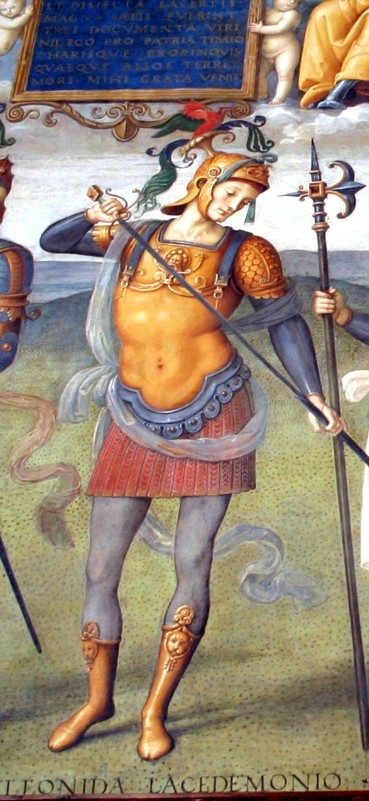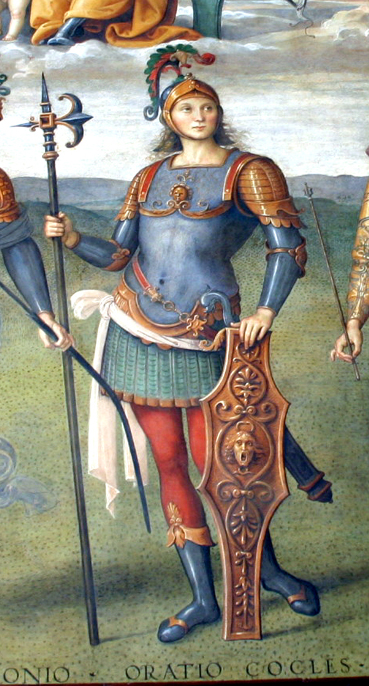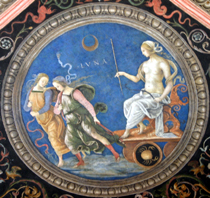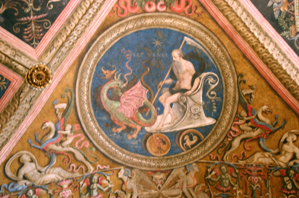Collegio del Cambio
This morning we visited the Palazzo dei Priori. We began at the Collegio del Cambio (Guild of the Money Changers, Bankers Guild). The Collegio del Cambio which built between 1452 and 1457. The entrance doorway is a beautifully crafted work in wood that dates back to 1505. We entered the Sala dell'Udienza (council room), which is the finest and best preserved 15th century secular room in Italy. The woodwork in the council room is by Domenico de Tasso. The vault has the zodiac signs for the heavenly bodies (sun, moon, planets). The Allegories of Fortitude and Temperance with Six Antique Heroes (Lucius Sicinius, Leonidas the Lacedaemonian, Horatius Cocles, Publius Scipio, Pericles of Athens and Quintus Cincinnatus), Allegoies of Prudence and Justice (Fabius Maximus, Socrates, Numa Pompilius, Furius Camillus, Pittacus, Trajan). The Almighty with Prophets (Isaiah, Moses, Daniel, David, Jeremiah, and Solomon) and Sybils (Delphic, Tiburtine, Libyan, Cumaean, Persian and Erythraean).
Then we passed through a small "secret door" to the Cappella di San Giovanni Battista to see frescoes on the life of Saint John by Giannicola di Paolo. We were not allowed to photograph any of these and, I regret to say, I can find nothing on the web to fill the gap.
National Gallery of Umbria After a short break, which Karen and I spent sitting in the sunshine along the Palazzo's wall, we went on a tour of the Galleria Nazionale dell'Umbria, which is in the upper floors of the Palazzo. It's a beautiful museum, spacious and airy. The link takes you to the museum's webpage (all in Italian at the moment). Click on visita al museo, then mappa, then the 2° or 3° piano (floor), then the sale (rooms); highlights of the collections are shown.








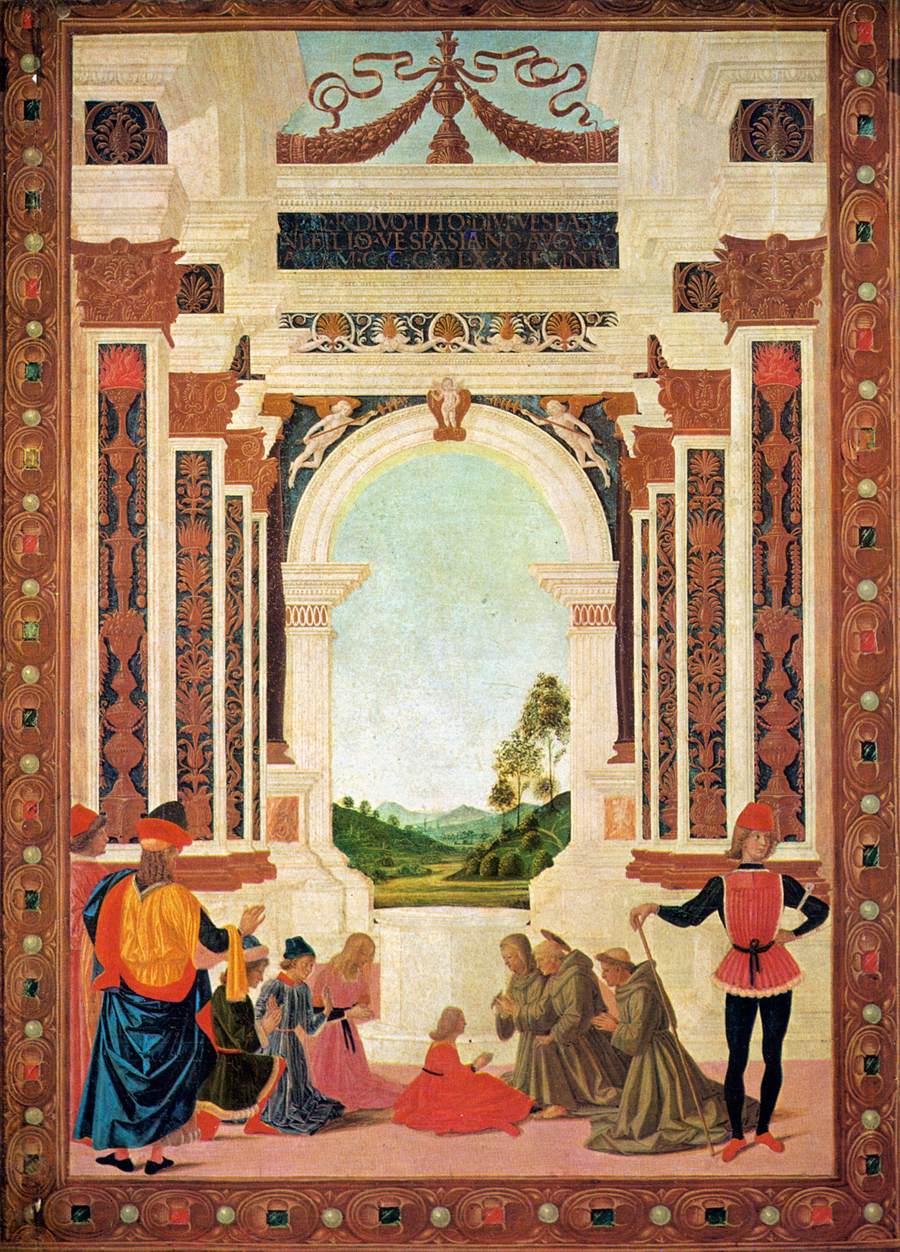

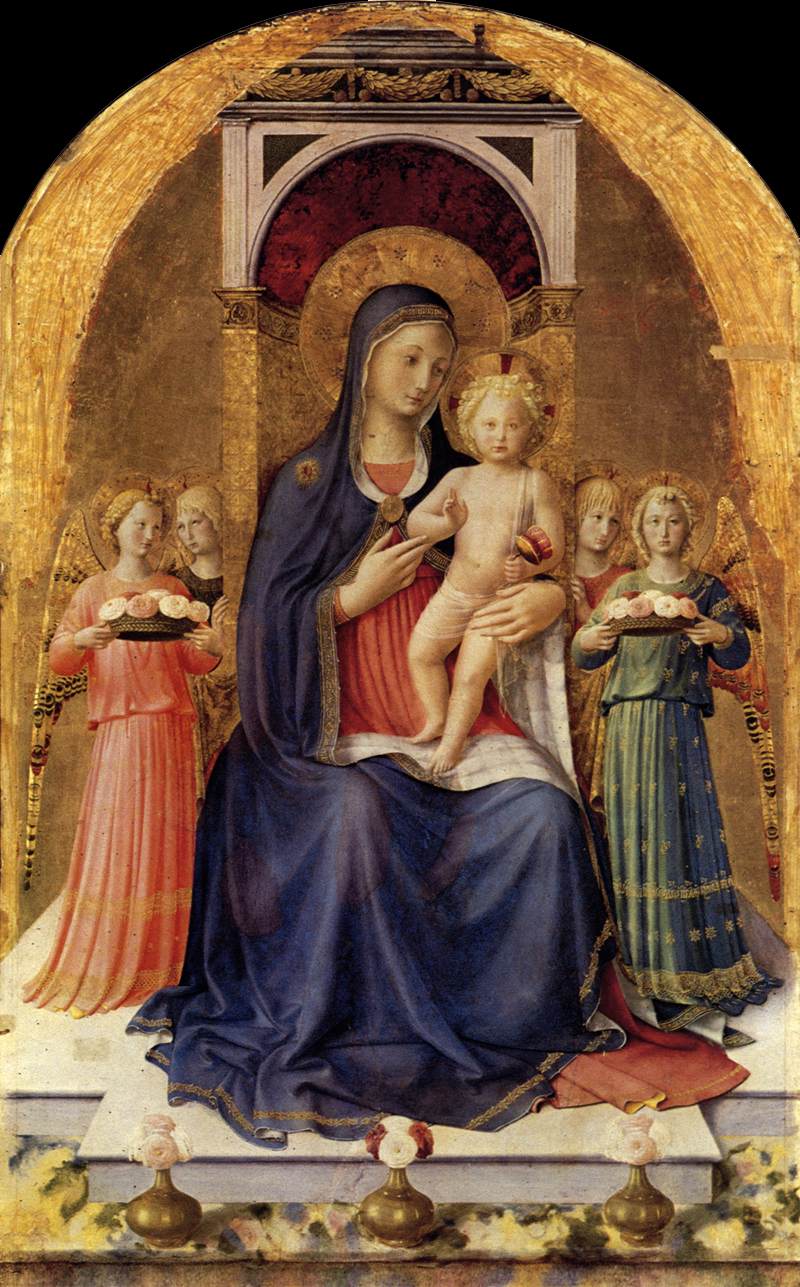




Our room hadn't been done when we returned from lunch, so we took books out to hotel's terrace and enjoyed the nice day. Marco's lecture on Italy At three-thirty we attended a tour-de-force lecture by Marco on the Italian language, history of Italy after the collapse of the Roman Empire, and the rise of the vulgate. Sketch of the presentation: 476 Fall of the Roman Empire — invasion of "barbarians" (through Alps Europeans, in South Arabs 8th thru 9th c.) — only universal foods: wine, bread — only unifying factor was Latin — "feud" originally meant "fortress" — certified death of cities — 10th c. barbarians fully integrated with natives through shared Christianity — returning cities, comunes — Benedictines, joined and donated all belongings to the Order, had education, copy-preserve manuscripts, preserve forests, make medicine — 1224 Francis of Assisi wrote in vulgare (nothing negative) Canticle of the Creatures, very close to modern Italian — Dante De Vulgari Eloquenza (written in Latin) — troubadours in France, Sicilians in Palermo - introduce romantic, secular love - opposed by Church, esp. Innocent III who made two crusades against Provence — dogma (path) vs. heretics (diversion) — Florence most receptive to new ideas, avante guarde — revaluation of women, emergence of Mary, Beatrice — Divine Comedy - time to prepare to face death; time to be serious about God; love is supreme effort of man to reach God — Petrarch from Arezzo writes in vulgare about unified Italy — Boccaccio Decameron short stories (not poetry), strongly journalistic — Lorenzo the Magnificent, Song of Bacchus with its emphasis on merrymaking and the uncertainty of the future:
Had dinner -- the food, by the way, has been fine -- then attended an optional talk about things to do on our free day (Friday). We had already decided to stay in Perugia and do some church- and Etruscan-ruin-hunting, but we went anyway because this group's fun to be with.
|
